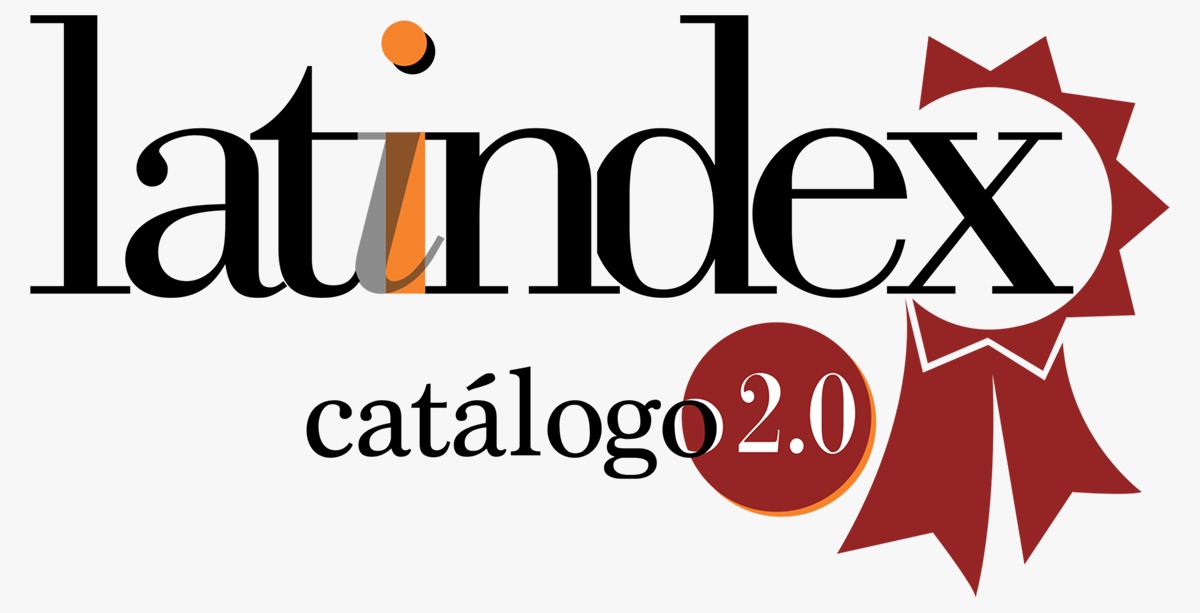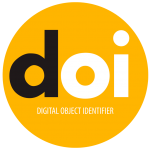Epistemology and Quantitative Research
DOI:
https://doi.org/10.47865/igob.vol3.2020.88Keywords:
epistemological knowledge, didactics, epistemology, quantitative research, scientific method, paradigmAbstract
This study presents a theoretical analysis between epistemology and quantitative research and the relationship of the indicated variables, from a theoretical perspective in higher education, for which the conceptual analysis of science has been used in both terms, determining that the Theoretical study of epistemological knowledge, is scientific knowledge in the field of epistemology, in the entire field of education that includes teachers and students; They have their appreciation, as part of the gnoseology or philosophy of science; however, the latter does not correspond. Quantitative research adds the paradigms of the facts, the structure of science, the verification of the hypotheses or doing the research to change a fact; moreover, it is considered as a statistical inference of the scientific method. The study includes two different and at the same time complementary terms in scientific knowledge, whose support is in the quantitative approach of the hypothetical - deductive method, which is included in the study of science; otherwise, both study variables are directed towards the scientific structure, scientific methodology and paradigms, pedagogy as educational didactics and epistemology in its descriptive, critical and science orientation task.
Downloads
References
Adorno, T. W. (2001). Epistemología y ciencias sociales. Cátedra: Universitat de València.
Alonso, E., Blanco Abarca, A., Rodríguez Marín, J., & Alonso, E. (2008). Intervención psicosocial. Pearson Educación.
Alvarado De Pierola, C. (2005). Epsitemología. Lima: Mantaro.
Álvarez, R. (2019). EPISTEMOLOGÍA E IDENTIDAD CIENTIFÍCA. Dictamen Libre, 12, 43-63. https://doi.org/10.18041/2619-4244/dl.24.5464
Barrera Morales, M. F. (2006). Líneas de investigación en metodología de la investigación holística. Quiron Ediciones Sypal.
Barriga Hernandez, C. (2013). Epistemología. Lima: Talleres Gráficos Cepredim de la UNMSM.
Bedoya Madrid, J. I. (2018). Epistemología y pedagogía: Paradigmas de la pedagogía en la educación. http://www.ebooks7-24.com/?il=7413
Bernal Torres, C. A. (2016). Metodología de la investigación. Pearson Educación.
Blanché, R. (1973a). La epistemología. Oikos-tau.
Boarini, M., Portela, A., & Marco, M. (2020). Epistemología y educación: Ciencias de la educación e investigación educativa desde una mirada epistemológica. Apuntes Universitarios, 10, 113-130. https://doi.org/10.17162/au.v10i3.464
Briones, G. (1996). Metodologia de la investigacion cuantitativa en las ciencias sociales: V.3. Icfes (Instituto Colombiano para el Fomento de la Educación Superior).
Briones, G. (2002). Epistemología de la Ciencias Sociales. Bogotá: ARFO Editores e impresores Ltda.
Bunge, M. (1989). La investigación científica: Su estrategia y su filosofía. Ariel.
Bunge, M. (2006). Epistemología: Curso de actualización. Siglo Veintiuno.
Bunge, M. (2007). Buscar la filosofía en las ciencias sociales. Siglo XXI.
Bunge, M. (2009). Vigencia de la filosofía. Universidad Inca Garcilaso de la Vega.
Bunge, M. (2011). Las pseudociencias: ¡vaya timo! Laetoli.
Bunge, M. (2012). Diálogos urticantes. Universidad Inca Garcilaso de la Vega.
Bunge, M. (2013). Filosofía política. Barcelona. Editorial Gedisa.
Bunge, M. A., & González del Solar, R. (2006). A la caza de la realidad la controversia sobre el realismo. Editorial Gedisa.
Bunge, M., & García Molina, J. L. (1982). Filosofía de la física. Ariel.
Bunge, M., & Sacristán, M. (2011). La investigación científica: Su estrategia y su filosofía. Siglo XXI.
Conejero, J. (2018). Epistemología e investigación. Una crítica al pragmatismo. Revista CuidArte, 7, 1. https://doi.org/10.22201/fesi.23958979e.2018.7.14.69138
Córdova Baldeón, I. (2014). El informe de Investigación Cuantitativa (Primera). San Marcos E.I.R.L. Editor.
Díaz Genis, A., & Camejo, M. (Eds.). (2015). Epistemología y educación: Articulaciones y convergencias (Primera edición). Espacio Interdisciplinario, Universidad de la República Uruguay.
Filloux, J.-C., Leiva de García, S. G., Darrieux de Nux, Y., & Filloux, J.-C. (2016). Epistemología, ética y ciencias de la educación. http://www.digitaliapublishing.com/a/44347/
Georgina de Andrea, N. (2010). Perspectivas cualitativa y cuantitativa en investigación ¿inconmensurables? Fundamentos en humanidades (San Luis), 11(01).
Gibert Galassi, J. (2012). Epistemología de las ciencias sociales: Una visión internalista. Ediciones Escaparate.
Hurtado de Barrera, J. (2002). Formación de Investigadores retos y alternativas. Cooperativa Editorial Magisterio.
Hurtado de Barrera, J. (2006). El proyecto de investigación: Metodología de la investigación holística. Sypal.
Hurtado de Barrera, J., & Barrera Morales, M. F. (2000). Metodología de la investigación holística. Instituto Universitario de Tecnología Caripito: Servicios y Proyecciones para América Latina.
Mejía Mejia, E., Ñäupa Paitan, H., Novoa Ramirez, E., & Villagómez Paucar, A. (2013). Metodología de la Investigación Científica y Elaboración de Tesis. Lima, Perú: Centro de producción editorial e imprenta de la UNMSM.
Mosterín, J. (2011). Epistemología y racionalidad.
Muñoz Razo, C. (2011). Cómo elaborar y asesorar una investigación de Tesis. México: Pearson Educación de México.
Navarro Chávez, J. C. (2014). Epistemología y metodología (Primera edición). Grupo editorial Patria. http://site.ebrary.com/id/11013799
Ortega Martinez, F. J. (2002). Epistemología y Ciencia en la Actualidad. THEMATA, Revista de la Filosofía; N° 28, 01.
Ortiz Ocaña, A. (2015). Epistemología y Ciencias Humanas: Modelos Epistémicos y Paradigmas. Bogotá: Ediciones de la U.
Ortiz Ocaña, A. (2015a). Enfoques y métodos de investigación en las ciencias sociales.
Ortiz Ocaña, A. (2015b). Epistemología y ciencias humanas: Modelos epistémicos y paradigmas. http://www.ebooks7-24.com/?il=5591
Piaget, J. (1970). Lógica y conocimiento científico. Naturaleza y método de la epistemología. Buenos Aire: Proteo.
Piscoya Hermoza, L. (2009). Tópicos en Epistemología (Segunda). Fondo Editorial de la UIGV.
Reichenbach, H. (1961). Las tres tareas de Epistemología: en experience and Predictión, University Of Chicago Press. Chicago: University Of Chicago .
Solano Alonso, J. (2010). Fundamentos de Epistemología: una visión desde el caribe Colombiano. Barranquilla: Ediciones Universidad Simón Bolivar.
Solís Espinoza, C. (2007). Inicio en Epistemología. Filosofía y Teoría de la Ciencia: Vol. I (primero). San Marcos E.I.R.L. Editor.
Tamayo y Tamayo, M. (2003). El Proceso de la Investigación Científica. México: Limusa S. A. de C. V. Grupo Noriega Editores. 4ta. edición.
Toro Jaramillo, I. D., & Parra Ramírez, R. D. (2010). Fundamentos epistemológicos de la investigación y la metodología de la investigación: Cualitativa / cuantitativa. Fondo Editorial Universidad EAFIT.
Vara Horna, Alfredo Arístides. (2015). Los 7 pasos para elaborar una tesis: Como elaborar y asesorar una tesis para Ciencias Administrativas, Finanzas, Ciencias Sociales y Humanidades. http://www.ebooks7-24.com/?il=6177
Vara Horna, Arístides Alfredo. (2014). ¿Cómo Evaluar la Rigurosidad Científica de las Tesis Doctorales? Fondo Editorial de la USMP.
Zúñiga, L. (2010). Apuntes sobre epistemología e investigación en la enseñanza de los Estudios Sociales. Educación, 34. https://doi.org/10.15517/revedu.v34i2.487
Published
How to Cite
Issue
Section
License
Copyright (c) 2020 IGOBERNANZA

This work is licensed under a Creative Commons Attribution-NonCommercial-ShareAlike 4.0 International License.
Esta obra está bajo una licencia internacional Creative Commons Atribución-NoComercial-CompartirIgual 4.0.
















